President and polymath Thomas Jefferson after whom it is named. Thomas Jefferson designed it to represent the authority of nature and power of reason and modeled it after the Pantheon in Rome.

Building Monticello Thomas Jefferson S Monticello
Despite enlargements and remodeling there was never space enough to shelve the collections properly and it was decided in 1886 to move the library into its own building.
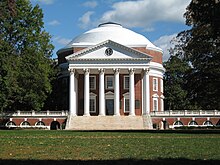
. As a designer Jefferson is primarily known for his home Monticello and the University of Virginia established by Jefferson 200 years agoboth UNESCO World Heritage sitesbut his architectural career encompasses much more. He also influenced the planning of Washington DC. The eastern and western sides of the Lawn retain the unique pavilions sketched by Jefferson flanking student living quarters.
Possessed by a penchant for Palladio and a natural ability for design Jefferson set out to the wilderness of Piedmont Virginia to create his architectural masterpieces in a community he would establish as the ideal American village. These include his home his retreatthe university he founded and his designs for the homes of friends and political allies. University of Virginia at Charlottesville Virginia 1826.
Jefferson believed that architecture was the heart of the American cause. There are no other public buildings but churches and court-houses in which no attempts are made at elegance Thus when Jefferson began to design his own home he turned not to the architecture then in vogue around the Williamsburg area but instead to the classically inspired architecture of Antonio Palladio and James Gibbs. The grand design of the librarys Thomas Jefferson Building was based on the Paris Opera House and seemed to proclaim Americas faith in learning and knowledge as vital strengths in upholding the republic.
He was highly influenced by the classical and Neoclassical buildings of France. The campus of the new university was unique in that its. Jefferson owned several plantations but built elaborate houses for his personal use at only two of themMonticello and Poplar Forest.
Jefferson drew his first design for a Virginia Capitol possibly for Williamsburg in the early or mid1770s. Thomas Jefferson Great Buildings Search Advanced Buildings Architects Types Places 3D Models Pix Archiplanet ArchitectureWeek Works. Palladios villas are visions of smooth planar beauty crisp whiteness in the Italian piedmont sun.
Jeffersonian architecture is an American form of Neo-Classicism andor Neo-Palladianism embodied in the architectural designs of US. Jefferson is perhaps best known for his homes Monticello in Albemarle County and Poplar Forest in Bedford Countywhich became laboratories for Jeffersons design interests and his many influences. The Rotunda originally the Universitys librarystill serves as the heart of the University and as a symbol of our endless pursuit of knowledge.
3D Model map of works. Building Monticello Little Mountain. He said that Architecture is my Delight.
Portrait of Washington From Life Jean-Antoine Houdon. Poplar Forest at near Lynchburg Virginia 1806. The chance to create a new Capitol did not arise until 1785 when the.
He had decided to treat the exterior as a giant Ionic temple and had also probably thought of using the Capitol to set a model for cubic architecture and the Orders. List features buildings like The Rotunda Monticello and more. If you want to find out even more about these famous Thomas Jefferson buildings you can click on the building names to get additional information.
Jefferson inherited sizable property in Albemarle County Virginia from his father Peter Jefferson. In addition to planning public buildings Jefferson designed Monticello and several other Virginia homes often for friends. The Roman Pantheon -- the circular domed rotunda dedicated to all pagan gods -- was suggested by Jefferson who later shepherded it through several transformations.
The Rotunda is a building located on The Lawn on the original grounds of the University of Virginia. Jefferson applied his design skills not only to buildings but to almost anything he saw. The former president designed the University of Virginia.
The University of Virginia. For Thomas Jefferson the Wren Building at the College of William Mary was a prototype example of English architecture. In 1806 Jefferson began the construction of his octagonal brick house at Poplar Forestthe centerpiece of an intricate villa design.
MrTinDC CC BY-ND 20. Monticello in particular brought together Jeffersons obsessions with classical forms and his admiration for contemporary France. As early as 1790 Jefferson began planning revisions for his Albemarle County home based in.
He designed his retreat home Poplar Forest in the shape of an octagon a form that intrigued Jefferson as an architect. Over a dozen private homes bearing his personal. Thomas Jefferson was motivated by the ancient Roman buildings and by the work of neoclassical architects.
Jeffersons Palladian work in the Virginia piedmont Monticello Poplar Forest and the University of Virginia are clothed in molded red brick and striped with sand mortar. Construction began in 1822 and was completed shortly after Jeffersons death in 1826. Monticello at Charlottesville Virginia 1768 to 1782.
Monticello made by Jefferson is a perfect example of Neoclassical architecture. An architectural drawing by Thomas Jefferson shows his plan for the lower portico of Pavilion VII one of ten pavilions at the University of Virginia where professors would live and teach. Thomas Jefferson and Charles-Louis Clérisseau Virginia State Capitol completed 1792 photo.

Architecture Is My Delight Thomas Jefferson S Monticello
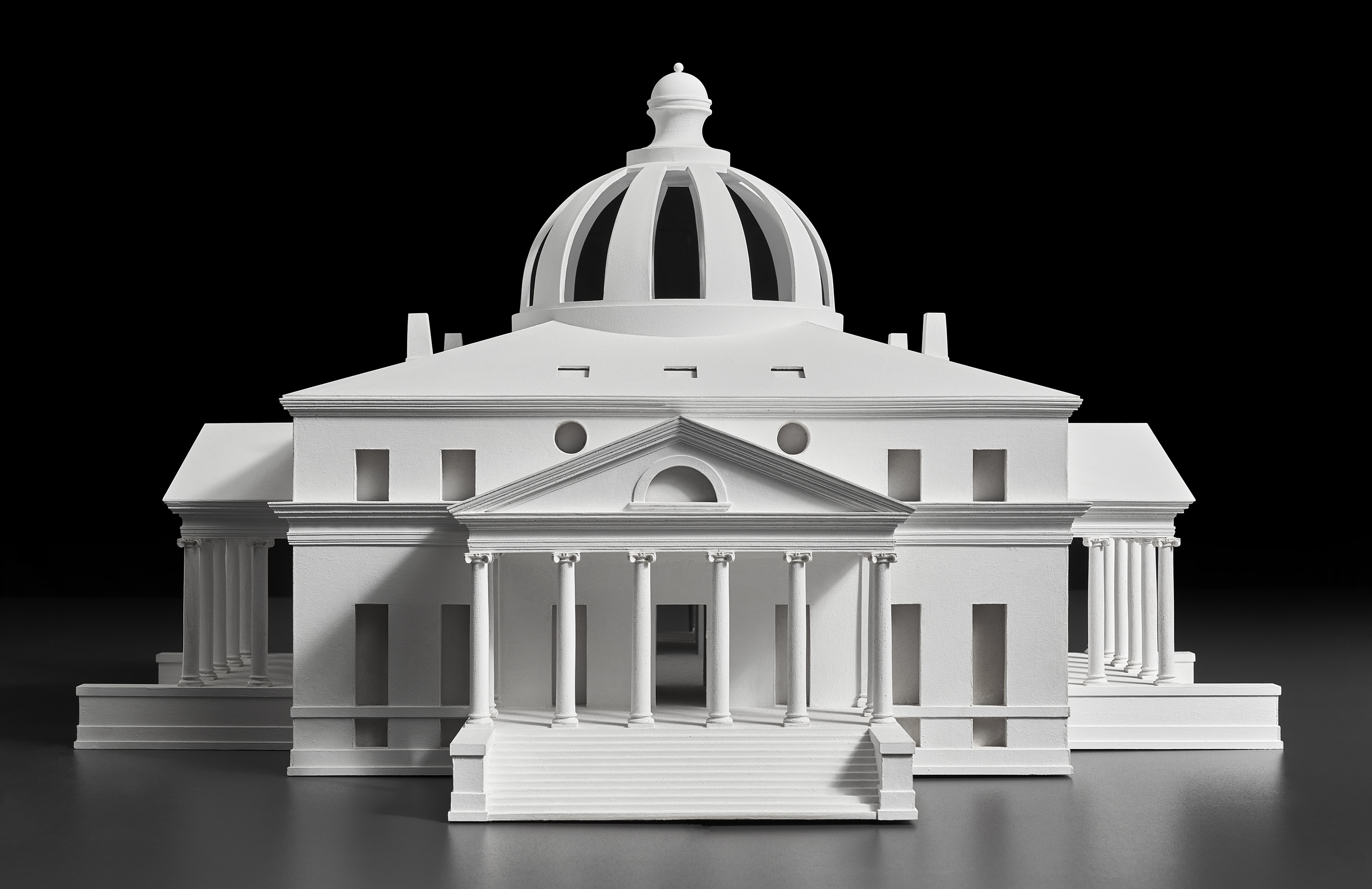
Virginia S Chrysler Museum Reevaluates The Architectural Legacy Of Thomas Jefferson

What Buildings Did Thomas Jefferson Design Bindleyhardware Co
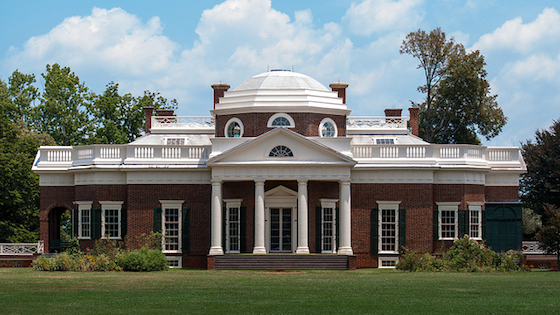
Thomas Jefferson Monticello Article Khan Academy
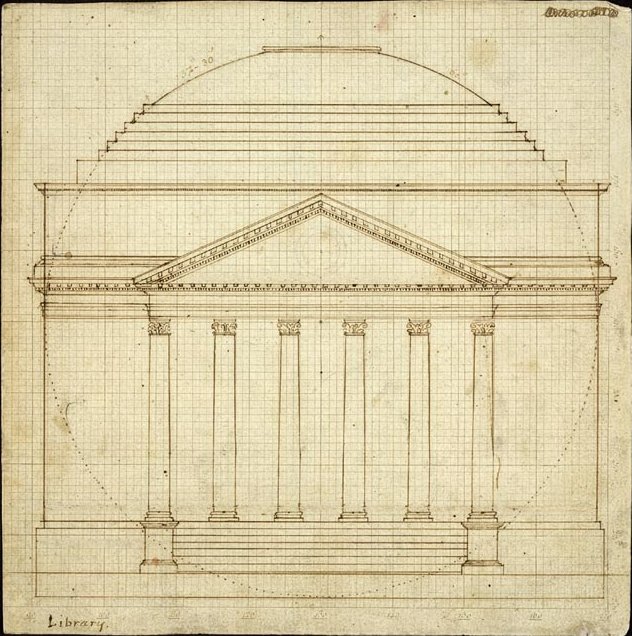
Jeffersonian Architecture Wikipedia

Jeffersonian Architecture Wikipedia
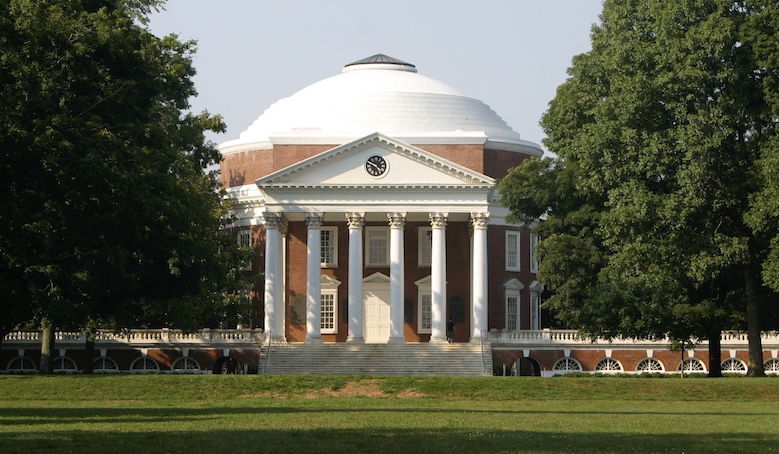
Thomas Jefferson Rotunda University Of Virginia Article Khan Academy
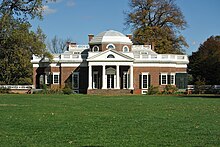
0 comments
Post a Comment